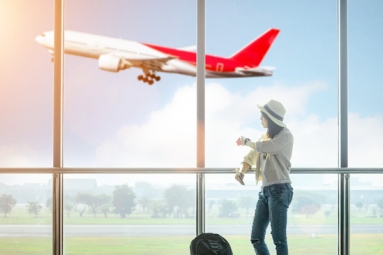
(Image source from: Canva.com)
When a relationship deepens or a family grows, personal care often takes a backseat. Prioritizing the needs and happiness of others becomes the norm, even if it means sacrificing activities that once brought great joy, such as solo travel. Society makes it difficult, with skeptical reactions and unsolicited comments when one mentions travelling alone after marriage or having children. However, it's important to consider whether you're holding back due to societal expectations or fear of how your family might manage without you. Suppressing your passions, especially something as fulfilling as solo travel, can have a negative impact on your mental well-being and relationships in the long run.
Traveling alone is important, regardless of one's relationship status, gender, or occupation. Experts strongly encourage solo trips, as they allow people to explore their preferences, dislikes, goals, and visions for their lives. Traveling solo cultivates a sense of independence and freedom that is vital for personal growth. In the Indian context, where societal norms often emphasize the collective "we" system, marriage or relationships are frequently associated with a sense of responsibility. A solo trip, therefore, becomes a form of self-care, helping individuals nurture their individuality while still existing as a partner to someone else.
According to Ruchi Ruuh, a relationship counselor in Delhi, solo travel can be beneficial for maintaining a healthy dynamic in relationships. She explains that healthy relationships are built on the concept of differentiation, where partners celebrate their individuality while coming together as a couple. Solo travel allows people to better understand and experience their own personalities. Additionally, solo travel can have positive effects on mental health by breaking routine, reducing stress, and providing new perspectives. Absy Sam mentions that solo trips can be particularly empowering for Indian women, giving them a sense of independence and self-reliance. While solo travel doesn't mean distancing from a partner, it can actually strengthen trust and respect for each other's need for autonomy. However, Absy Sam advises open communication with partners who may be uncomfortable with the idea, explaining the purpose and benefits of solo travel.
Addressing concerns with empathy and clarity can help maintain understanding and trust. Even with children, parents can still enjoy solo trips by involving family or hiring help during their absence, starting with shorter, nearby trips. Solo travel can set an example for children about the importance of self-care, as parents who take time for themselves often return refreshed and better equipped to handle family responsibilities. Balancing solo trips and couple vacations requires careful planning, such as alternating them, budgeting carefully, staying connected through updates, and communicating clearly about trip frequency and purpose.







